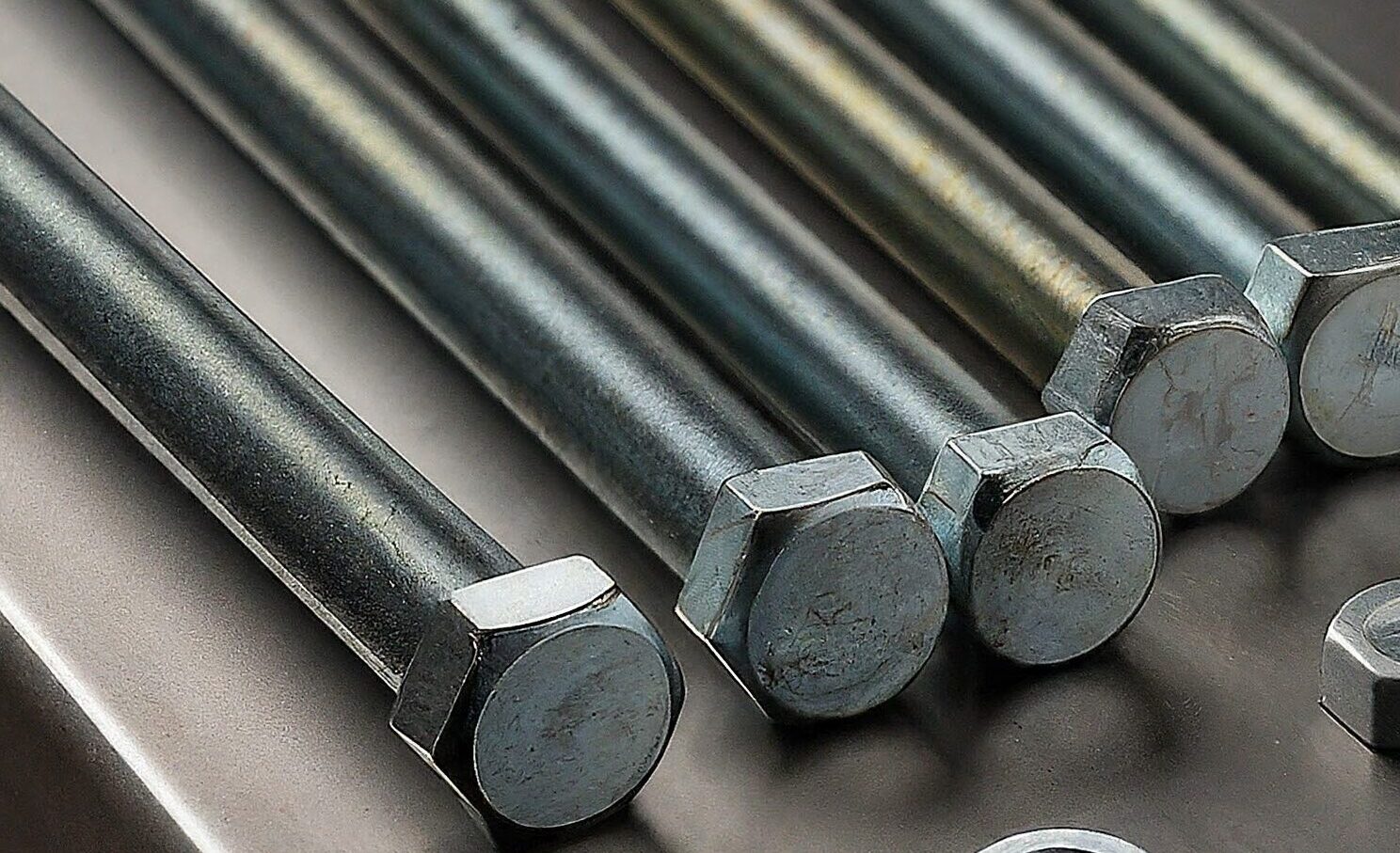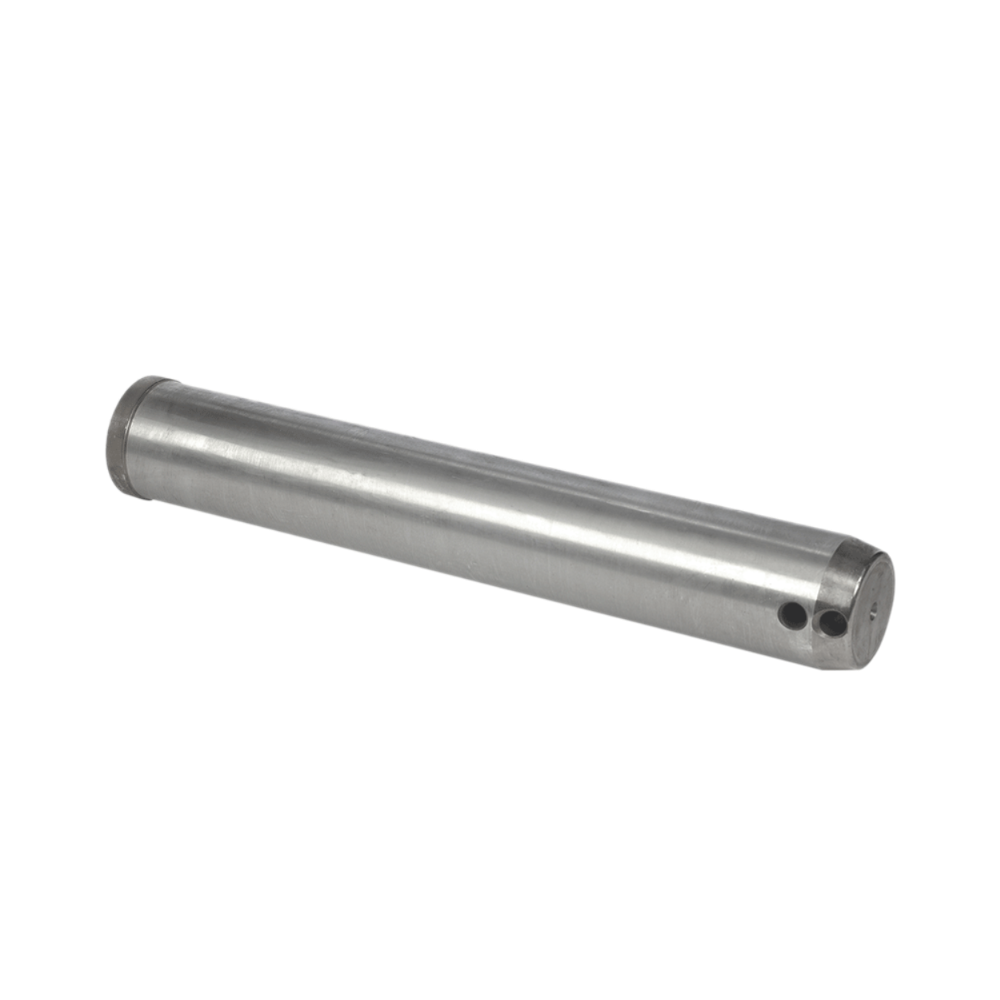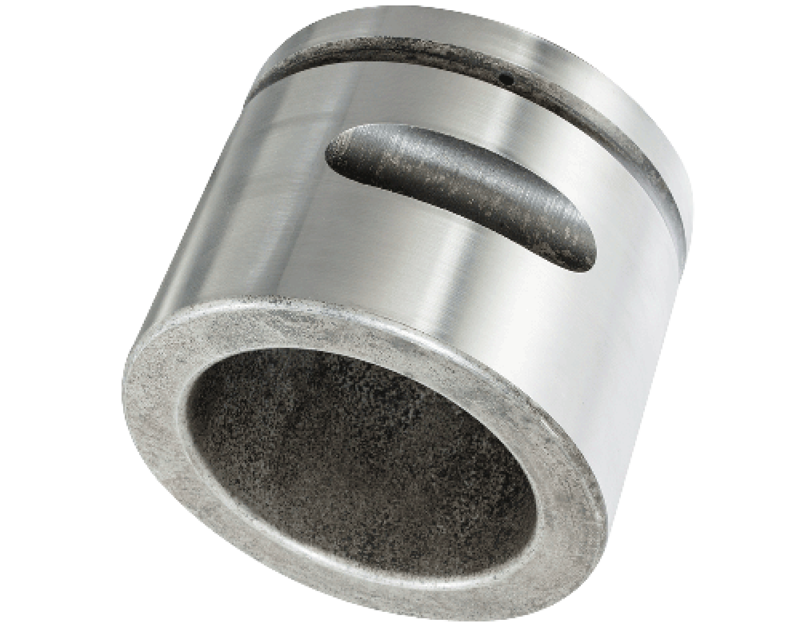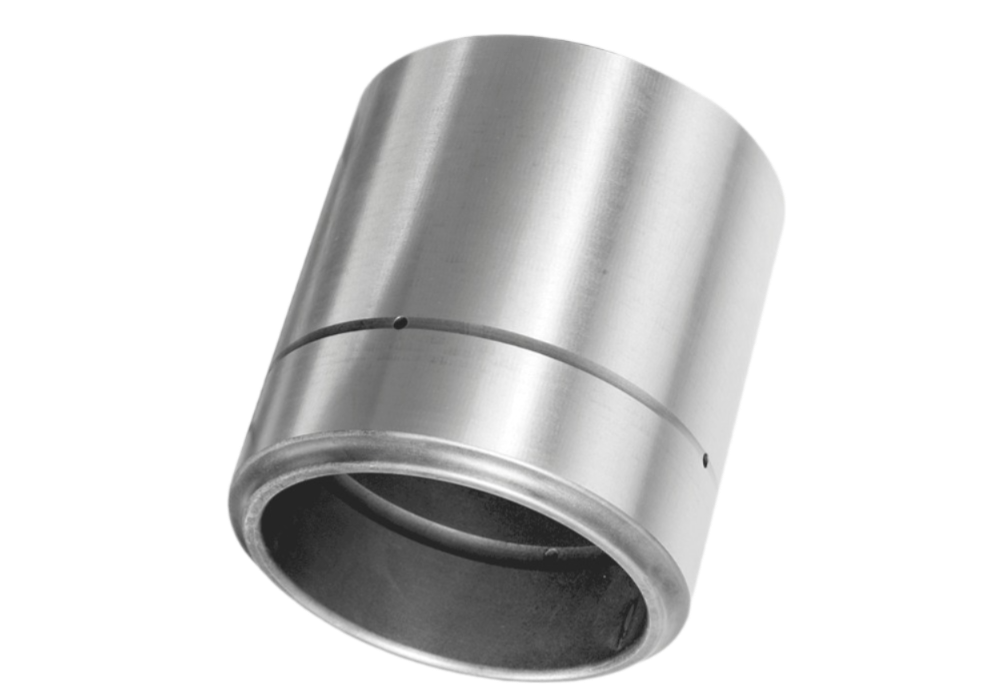When mounting through bolts, precision and attention to detail are crucial to ensure the stability and safety of your installations. Through bolts are essential for securing heavy equipment and structures, particularly in earthmoving machinery. However, improper installation can lead to severe consequences, such as structural failure or equipment damage. This guide by Axle Shaft will walk you through the critical aspects of bolt installation and highlight common mistakes to avoid.
What is a through bolt?
A through bolt is a robust fastener designed to pass entirely through the material it secures, with a nut tightened on the opposite side to create a strong and reliable connection. This type of bolt is commonly used in heavy-duty applications such as construction, earthmoving machinery, and structural assemblies, where secure and stable fastening is crucial. Through bolts ensure even load distribution and are capable of handling high stress and heavy loads, making them essential for applications that demand exceptional strength and durability.
How do through bolts work?
Through bolts function by extending through the entirety of the material being fastened. A hole is drilled through the material, and the bolt is inserted, allowing the threaded end to protrude from the opposite side. A nut and washer are then attached and tightened onto the threaded end, securing the materials together. This creates a strong, reliable connection by distributing the load evenly across the bolt’s length. Through bolts are especially effective in applications requiring high strength and stability, such as in construction and heavy machinery, ensuring that the fastened materials remain securely in place.
Caution on edges
When installing through bolts, special attention must be paid to the edges of the materials being fastened. Placing bolts too close to the edge can compromise the integrity of the material, leading to cracks, splits, or breaks. This is especially critical in heavy-duty applications where structural stability is paramount. Maintaining a safe distance from edges ensures that the material can withstand the stress and load applied without failure. Proper edge distance helps in distributing the load evenly and prevents weakening of the structure, ensuring a secure and durable installation.
Three common mistakes when installing through bolts
1. Mistake no. 1: Fastening point too close to the edge
Placing through bolts too close to the edge of a material can lead to cracks and structural failure. This weakens the connection and compromises the integrity of the entire assembly. Always ensure sufficient distance from the edges to maintain strength and stability.
2. Mistake no. 2: Angled through bolts
Installing through bolts at an angle can result in uneven load distribution and reduce the bolt’s holding power. For maximum strength and stability, bolts should be inserted perpendicular to the surface of the material.
3. Mistake no. 3: Selection of the wrong attachment point
Choosing an incorrect attachment point can undermine the structural integrity of the installation. It’s essential to select appropriate points that ensure optimal load distribution and stability, preventing potential safety hazards.
Note edge distances, avoid damages
Maintaining appropriate edge distances when installing through bolts is crucial for ensuring the integrity and durability of the structure. Placing bolts too close to the edges can cause the material to crack, split, or fail under stress, compromising the overall stability. It’s essential to adhere to recommended edge distance guidelines, which vary based on the material and application. Proper edge distances help distribute the load evenly, prevent the weakening of the structure, and enhance the performance and safety of the installation. By carefully considering edge distances, you can avoid damage and ensure a robust, long-lasting connection.
Chemical anchors as an alternative
Chemical anchors offer a versatile and robust alternative to through bolts, especially in situations where edge distances are critical. These anchors use a resin adhesive to bond the anchor to the material, providing strong, reliable fastening without the need to drill completely through the material. Chemical anchors are ideal for use in concrete, masonry, and other substrates where traditional through bolts may compromise structural integrity. They distribute loads evenly, minimize stress on the material, and allow for installation in closer proximity to edges without the risk of cracking or damage, ensuring a secure and durable connection.
Through Bolt Installation
Proper installation of through bolts is essential for ensuring strong and reliable connections. Begin by drilling a hole that matches the bolt’s diameter, ensuring it’s perpendicular to the surface. Insert the bolt through the hole, allowing it to extend fully through the material. Place a washer and nut on the protruding end, and tighten them to the specified torque, ensuring even pressure distribution. Avoid over-tightening, which can damage the material or the bolt itself. Regularly inspect the installation for signs of wear or loosening. Adhering to these steps ensures a secure and durable fastening, critical for high-stress applications.
Call the experts in Through Bolt Anchors for the Best Advice
When it comes to bolt anchors, seeking advice from experienced professionals is paramount. Experts possess in-depth knowledge of various applications, materials, and installation techniques. They can provide personalized guidance tailored to your specific needs and challenges. Whether you’re dealing with complex installations or seeking recommendations for optimal performance and safety, consulting with experts ensures you make informed decisions. Their expertise can help you avoid costly mistakes, optimize efficiency, and achieve the best results. Trusting the advice of through bolt anchor experts ensures the success and longevity of your projects.
High Tensile Hex Bolt and High Tensile Stud Bolt Supplier
Axle Shaft stands as a premier supplier of high tensile hex bolts and stud bolts, renowned for their robustness and resilience, making them perfect for rigorous applications in earthmoving machinery. Our products ensure reliable performance, enhancing the efficiency and durability of your equipment.
Buy High Tensile Hex Head Bolts at best price, High Tension Bolt, High Tensile Fasteners Manufacturer in India
We offer competitive prices on high tensile hex head bolts, tension bolts, and other fasteners without compromising on quality. Our commitment lies in providing the best value to our customers, ensuring they receive top-notch products that meet their requirements while staying within budget.
Detailed Specs for High Tensile Hex Bolts
Our comprehensive high tensile hex bolt specification chart furnishes detailed insights into dimensions, grades, and mechanical properties. This resource empowers you to make informed decisions, ensuring you select the precise bolt that aligns perfectly with your application’s requirements, guaranteeing optimal performance and safety.
Application of High Tensile F568 Heavy Hex Bolts
High tensile F568 heavy hex bolts excel in applications demanding exceptional strength and endurance, including construction, mining, and heavy machinery. Their superior performance ensures reliable and secure fastening, contributing to the longevity and efficiency of your operations.
High Tensile Bolt Manufacturers in India
As a trusted manufacturer of high tensile bolts in India, Axle Shaft delivers products adhering to international standards, tailored to meet the diverse needs of various industries. Our commitment to quality and reliability makes us the preferred choice for businesses seeking robust fastening solutions.
Read Also This Blog





Leave A Comment